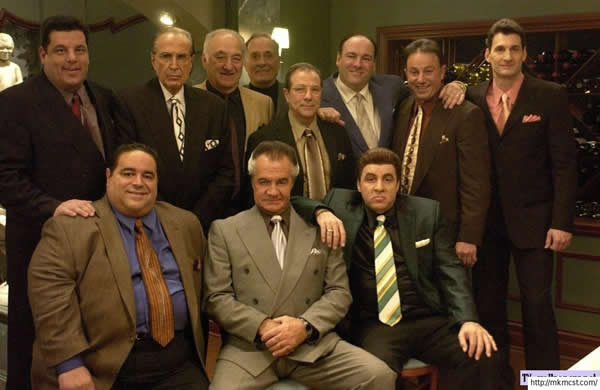Lesson 7: Deviance, Crime, and Social Control
Attention
This is a great video that outlines major perspectives in deviance and the causes of deviance
Learning Outcomes
Upon completion of this lesson's material, students will be able to:
- Identify social control mechanisms within personal social groups.
- Document responses to deviant social behavior.
Teaching
Despite the title of this lesson we are going to take these topics on in this order...deviance, social control, and crime! So, we are going to DEVIATE!
Deviance
We have been talking through this class about culture and the norms, values, expectations, and material culture of groups. Deviance is when someone acts outside the culture of the group! They are not in compliance with the norms, values, expectations, and/or material culture of the group.
So, deviance is really only relative to the culture of the group. This really brings us head on with the definitions of "normal" and "abnormal" being, well, it depends on which group you are in!
Example - Growing up in a Crime Family
Case of the television show "The Sopranos" Let's say that I grew up in a family that was in the crime business (we will define crime later!) For generations my family has been involved in organized crime with a focus on drugs, extortion, and illegal Pokemon cards. I grow up and the "norms, values, and expectations" of my family center around my emerging status/role (remember those!?) as a member of the crime family. Let's say, however, that I decide I'm going to become a cowboy and operate a horse ranch. Relative to my FAMILY I am DEVIANT even though relative to the common culture I have moved away from deviance. |
Deviance can be Positive
Throughout history there are individuals who were deviant for good reasons. People with extreme talent, intelligence, wealth, etc. These all exemplify positive applications of deviance.
There are also many times in history where the REBELS were acting in ways that were unacceptable (deviant) from the mainstream culture, much to the benefit of those societies. For example:
- The American Revolution
- Civil Rights Movement
- The Rebel Alliance against Darth Vader and the Empire
Social Control
All groups have a mechanism built into their culture that provides for responses to members who begin to act outside the norms, values, and expectations of the group.
Many of these are informal. Consider the ways in which groups respond to these deviances:
- Your family (group) has strong thoughts about politics and they always vote Republican (norm). What would happen if you began volunteering for the Democratic party in your state(deviance)?
- Your motorcycle gang (group) always rides Harley Davidson motorcycles (norm). You decide to break out and show up at then Laconia Bike Week riding a Kawasaki?
- Your church (group) feels that persons of all sexual orientation are welcome into the church community (norm). You show up to the Coffee Social wearing your "One Woman One Man" anti-same-sex marriage shirt.
You can see that these groups may have a variety of responses to these kinds of deviances. These informal (and sometimes a bit formal) responses are a form of social control.
Crime, Law, and the Criminal Justice System
In a large society many of the "norms, values, and expectations" have been codified into law. In addition, there may be formal responses and ways to deal with persons who violate these laws (deviance). The Criminal Justice System is a formal Social Control mechanism for persons who deviate (crime) from the law (norms).
Your book contains amazing links to resources like the Uniform Crime Reporting page...take the opportunity to explore these resources.
Although some of these may not be "crimes" you can see where the formal nature of the social control system is distinct from informal responses.
- You are clocked doing 90 MPH in a school zone.
- You "forgot" to send in your payment on your auto loan.
- You got an F in all of your classes at KVCC.
Each of these deviant behaviors will result in a codified response.
- Charged with the crime of speeding with possible suspension, loss of license, fine, etc.
- Possible repossession of your car, impact your credit rating, bank fines, etc.
- Low GPA, possible suspension from school, financial consequences.
Assessment
The Online Discussions are for students who are taking Online and Hybrid versions of this class. Your Instructor will inform you if you have to pay attention to these...otherwise you can ignore them.
Lesson 7 Discussion
For this discussion you are going to conduct a social experiment of sorts. I want you to work with your instructor (and in groups if you wish) to identify a non-criminal, deviant behavior that you are going to engage in. You are to perform this behavior within the group or in the situation in which the behavior would be considered deviant.
After you have done so you will need to interview the people impacted by your behavior and report on their responses.
Use this discussion board to explore ideas, to communicate with your instructor, and to report out on your results!
Lesson 7 Quiz
- Write an essay about a personal social group that you belong to, a specific and important social norm, and an outline of the consequences for members who violate that norm. Your essay should use the terms that have been introduced in this lesson.
